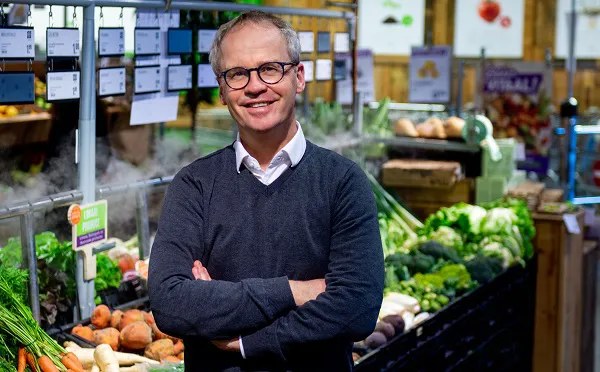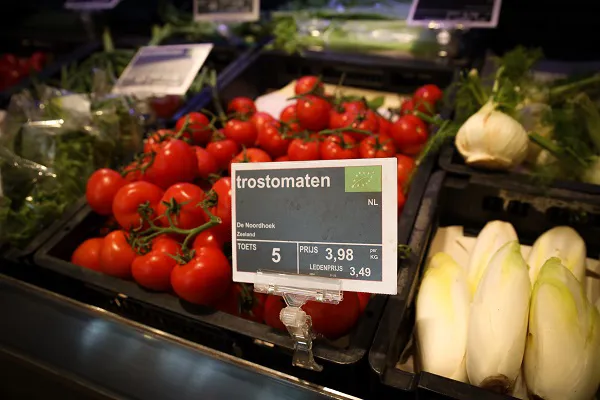Did you know that people spend only eight percent of their income on food? This share is greatly overestimated. People in the Netherlands think it is 24%. And since the cost of living is rising sharply, a different spending pattern is expected. According to Bionext director Michaël Wilde, this could positively affect the organic segment.

Bionext is the chain organization for Dutch organic agriculture and food. It believes organic farming could solve many of society’s challenges, like biodiversity loss, health issues, water pollution, soil degradation, and climate change. “We’re not anti-organic,” says Michaël. “That’s certainly not the message we want to convey. Instead, we consider connection as the solution. Organic isn’t the only way. But, as far as we’re concerned, it’s the most logical way towards a better, sustainable world.”
Gaining appreciation
With the cost of living skyrocketing, more people are struggling to make ends meet. According to Michaël, the organic sector could benefit. He thinks shoppers will spend more money on food and make increasingly conscious choices about this.
“Many believe consumers aren’t prepared to pay for sustainable products because of rising fuel, gas, and food prices. We don’t; in fact, we foresee opportunities. We expect our products to gain more appreciation, so people will be willing to pay for them. The intention is certainly there, and we’re happy to help them with that.”

Wilde is referring to the new ‘De mooiste boodschap is bio’ (‘The best groceries are organic’) campaign Bionext recently introduced to encourage consumers to buy organic more often. “The price is often a barrier to going organic. Most shoppers say they’d buy organic more often, but in stores, they mainly look at prices.”
While it turns out that when consumers know more about organic, they’re quite willing to pay more. Along with growing the organic market share, the campaign should also increase awareness of and trust in the European organic label. “So people get a subconscious push to buy organic more often,” explains Michaël.
Stimulating demand
The organization is trying to find retail partners for this campaign. They say retailers are essential in transitioning to a more future-proof agriculture and food system. “The campaign aims to stimulate demand so that organic growers can be more certain of sales, and organic becomes more attractive.”
According to Bionext, this is also very much needed to achieve the European Commission’s ambition of having a 25% organic agricultural area by 2030. “That’s a huge challenge in the Netherlands, given the current organic acreage share of 4.6%,” Michaël concludes.
The conventional/organic price gap is shrinking, and Bionext thinks this will only continue. Michaël: “Our growers face the same issues. Think of cash crop growers facing high cultivation costs because of gas prices. All prices are rising, and from what I hear, it’s harder on conventional than organic farmers. Pesticides and artificial fertilizers, for instance, have become far more expensive.”
“We, obviously, don’t use these. In any case, the idea that organic is expensive isn’t always true. You have to be willing to see that. We’re committed to making organic better understood. People must realize how insecure our food system is and that we must take much more joint responsibility for it and start valuing our food much more.”
Michaël Wilde
Bionext
[email protected]
www.bionext.nl
